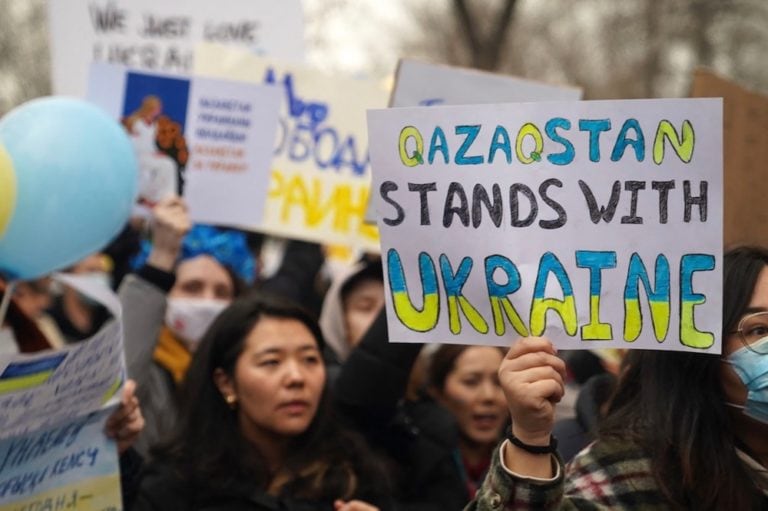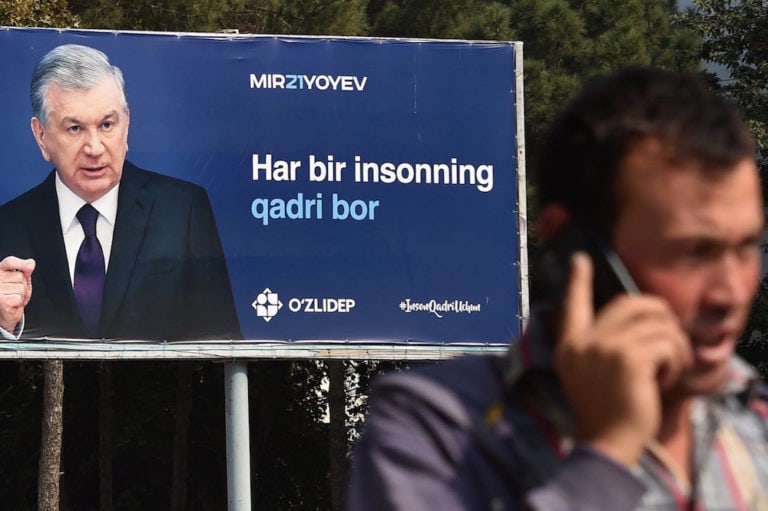The government continues its relentless persecution of human rights activists and others critical of the government.
(Human Rights Watch/IFEX) – New York, May 11, 2011 – The European Union and the United States should re-examine their relationships with the Uzbek government in light of its atrocious rights record, Human Rights Watch said today on the eve of the sixth anniversary of the government massacre at Andijan, Uzbekistan. Both the EU and the US have been enhancing their relationships with the Uzbek government.
“The EU and the US have to hold the Uzbek government to account for the Andijan massacre and for the unrelenting repression that continues to this day,” said Rachel Denber, acting Europe and Central Asia director at Human Rights Watch. “They should make clear there will be no deepening of relations without concrete human rights improvements and reiterate calls for justice for this terrible atrocity.”
On May 13, 2005, hundreds of largely peaceful protesters were killed by Uzbek government forces indiscriminately and without warning. No one has been held accountable for the killings, nor has the Uzbek government ceased its relentless persecution of those whom it suspects of having ties to the protest and of human rights activists and others critical of the government.
The massacre, the Uzbek government’s refusal to allow an international investigation, and the ensuing crackdown, led the EU to impose sanctions in October 2005 and to establish a set of human rights criteria for the Uzbek government. The Uzbek government has not met those criteria, but the EU gradually eased the sanctions and in 2009 lifted them completely.
While relations between Uzbekistan and its Western partners have essentially normalized, there is no evidence of improvements in Uzbekistan’s human rights record or any sign of political will to address the rampant human rights abuses in Uzbekistan.
In recent weeks, new information has come to light about Germany’s payments to Uzbekistan for use of an airbase in Termez for operations in Afghanistan. Germany made no secret about its aversion to the EU sanctions from the outset and actively undermined them. Just weeks after the sanctions were adopted, for instance, it allowed Zokir Almatov, Uzbekistan’s interior minister at the time, to travel to Germany for medical treatment, though he topped the list of Uzbek officials banned from EU territory. According to media reports, from 2005 through 2009, Germany paid a total of €67.9 million (US$97.1 million) for use of the Termez base, with the payments rising each year the sanctions were in place and falling in 2008, when the sanctions were almost completely lifted.
“In the wake of Andijan, the German government undermined the sanctions, arguing they weren’t effective,” Denber said. “If Germany wasn’t going to take a principled stand, it should at least have been more honest about why.”
According to another document made public by Germany’s Green Party, in 2010 Germany paid €15.9 million (US$22.7 milion) to the Uzbek Finance Ministry, in addition to just over 10 million for “rent of objects” and operation fees. Berlin will continue to pay the additional compensation in coming years that it uses the base, the document says.
“It is truly shocking that Germany is paying millions to the Uzbek government with no strings attached,” Denber said. “Germany should explain whether it has considered alternatives to Termez, and if so why it has ruled them out in favor of supporting this brutal government.”
The EU overall is currently deepening its engagement in Uzbekistan. In January 2011 the European Commission president, Jose Manuel Barroso, received the Uzbek president, Islam Karimov, in Brussels and the EU is seeking to open an EU delegation in Tashkent by the year’s end.
Human Rights Watch said that the EU’s eagerness to deepen its relationship with Uzbekistan without requiring human rights improvements contrasts with its recent rethinking of its relationships with autocratic governments in the Middle East. In March, Štefan Füle, the European commissioner for enlargement and the EU’s neighborhood policy, told the European Parliament that “too many of us fell prey to the assumption that authoritarian regimes were a guarantee of stability in the region.” He said that the EU should be on the side of people striving to promote European values.
The United States is also pursuing a policy of re-engagement with Uzbekistan. Congress has expressly restricted assistance to Uzbekistan based on its deplorable human rights record and further tightened those restrictions following the Andijan massacre. But the Obama administration is seeking to re-start assistance and to provide direct military aid, also known as Foreign Military Financing (FMF), to Uzbekistan in 2012.
( . . . )


